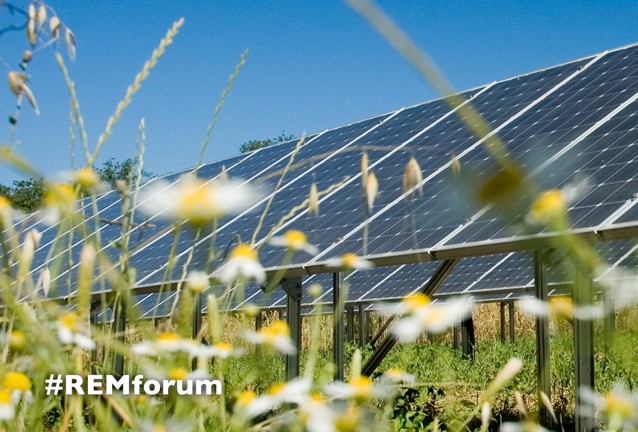Workshops 2017
Workshop 1 - Wind in the Sails: Reducing the Soft Cost of Wind Project Development
- Prof. Dr. Nathan Hultman, School of Public Policy, University of Maryland, Director of the Center for Global Sustainability, USA
- Prof. Dr. Ingrid Mignon, Department of Management and Engineering, Linköping University, Sweden
- Dr. Anna Ebers Broughel, University of St.Gallen
As wind turbines and other renewable energy hardware becomes cheaper every year, there is an urgent need to lower the “soft costs” of renewable energy infrastructure. The path to producing the first kilowatt of electricity from wind energy can be long and rocky, often due to restrictive regulations, policy uncertainties, and social acceptance issues. In this workshop, we intend to compare and contrast the process of wind project development in three countries: Sweden, Switzerland, and the United States. During the workshop, practitioners and researchers will reflect on best strategies to handle these challenges, given the tradeoffs between project costs, delays, and social acceptance. Examples of good practices will be discussed and participants will be encouraged to reflect on the transferability of these solutions across contexts.
Workshop 2 - #Post-truth and Renewable Energies: communication strategies to correct misinformation
- Adrian Rinscheid, University of St. Gallen (workshop leader)
- Hans C. Curtius, University of St.Gallen (workshop leader)
- Hanne May, Head Energy Consulting, Edelman.ergo, Germany
- Prof. Dr. Stephan Lewandowsky, Bristol University, UK
In the era of post-truth, widespread myths and misperceptions about renewable energies prevail both in the public and at the political level. Examples include the claim that producing solar cells requires more energy than they ever produce, and that wind turbines have serious impacts on human health such as causing cancer. The growing use of social media facilitates the wide diffusion of misinformation. Research shows that it is difficult to correct belief in misinformation, but also that it is possible to debunk false beliefs about renewables. In order to move from insight to impact, this workshop consists of three parts: (1) using insights from cognitive psychology, the reasons causing the persistence of false beliefs among particular segments of the population will be unveiled, (2) an insider of the renewable energy industry will give insights into stakeholders’ efforts to address misinformation, and (3) participants will elaborate specific communication strategies for given cases.
Workshop 3 - Making sustainable energy consumption fun and meaningful: visualization and gamification approaches
- Prof. Dr. Stefanie Hille, University of St.Gallen (workshop leader)
- Dr. Karoline Gamma, University of St.Gallen (workshop leader)
- Alexander Stauch, University of St.Gallen (workshop leader)
- Joël Baumgartner, Head Innovation, IWB Industrielle Werke Basel
- Vicente Carabias-Hütter, Head Sustainable Energy Systems, Zurich University of Applied Sciences (ZHAW)
- Dr. Felix Lossin, Head Strategic Marketing, Ben Energy AG
Gamification (the use of game design techniques in a real-world context) and visualization approaches have been successful in boosting consumer engagement and motivation in various fields. In this workshop, we will discuss how gamification and meaningful visualization can be beneficial to achieve Switzerland’s energy targets. To stimulate fruitful discussion, three interesting speakers will share their experience on how innovative approaches can be used to nudge consumers into sustainable energy behaviors. First, recent research findings from the Social Power Project on motivation neighborhood teams to strive for collective energy reduction will be presented. This project uses a social mobile application with game mechanics (competition and cooperation) to achieve this goal. Second, insights into IWB’s contest “Smart Basil – the Basel energy derby” with the aim to raise awareness of energy saving and efficiency through digital media in a playful way will be presented. Third, Ben Energy will share best practice examples on how visualized consumption feedback as well as gamification approaches such as reward games can trigger customer engagement for utilities.
Workshop 4 - Business models for local flexibility co-creation
- Merla Kubli, ZHAW and University of St.Gallen (workshop leader)
- Prof. Dr. Moritz Loock, University of St.Gallen (workshop leader)
- Oliver Breig, Managing Director, EnAdvice
- Martin Schröcker, Head Production and Trading, Fleco Power AG
The Swiss energy strategy 2050 projects a considerable growth of renewable energy production capacity. In order to synchronize the fluctuating production of solar and wind energy with demand, various solutions are discussed. Such solutions center around the storage of electricity, an adjustment of demand and supply or more flexible ways of production. Also consumers can become prosumers and produce energy. Overall, it appears that there is large potential to make the power system more flexible and flexibility emerges as a new source of value in the energy industry that can be used or shared in many ways. In this workshop, participants will learn about and discuss different flexibility-based business models with a special focus on local flexibility co-creation. Based on the inputs of experts the participants will develop own suggestions for value creation and capture based on local flexibility.
Workshop 5 - Forecasting and market reality: Exploring the future of e-mobility
- Yuliya Karneyeva, University of St.Gallen (workshop leader)
- Dr. Emmanuelle Reuter, University of St.Gallen (workshop leader)
- Diego A. Bonetta, Head Strategy and M&A Power Grids, BKW AG
- Andreas Burgener, Director, Auto Suisse - Association of the official automobile importers in Switzerland
- Prof. Dr. Theo Lieven, Head Electric Drive Evolution Lab International, University of St.Gallen
- Dr. Fereidoon P. Sioshansi, President, Menlo Energy Economics, USA
The energy industry is undergoing fundamental transformation. Liberalization, nuclear phase out, technological innovations, political changes, decentralization, market volatility and sharing economy constitute only some of the key issues that the energy market is facing. Although the alternatives for seizing investment opportunities may be manifold and varied, decision-makers share one common question: how to forecast future growth opportunities under uncertainty? This workshop concentrates on forecasting new business opportunities in the field of e-mobility under uncertainty. With an emphasis on forecasting, it uncovers how and why firms differentially take stock of the opportunities going forward. In a first part of the workshop, the importance of forecasting and some of the challenges associated with it will be introduced. In a second part, distinguished guest speakers will share their forecasts on the future business opportunities associated with development of e-mobility market. Finally, workshop participants will create their own forecasts for given investment opportunities and discuss their forecasts with our guest speakers.
Workshop 6 - How to make capital costs of hydropower plants in Switzerland work for investors?
- Pascal Vuichard, University of St.Gallen (workshop leader)
- Dr. Christian Dupraz, Head Hydropower, BFE
- Jonas Metzger, Senior Director, Aquila Capital
- Antoine Millioud, CEO, Aventron
Large hydropower plants play a crucial role in the overall energy transition. Switzerland with its topographic structures has long been relying on hydropower. The country now aims to increase its average production to 38'600 Gigawatt hours per year by 2050. But: new hydropower projects are only built when the project itself is economically feasible. Investment decisions for large hydropower projects depend on numerous and complex factors, and they often do not look too promising today. The public debate mostly stays on a generic level and evolves around the currently low electricity prices, predicting future electricity prices and the development of fossil fuel prices. The goal of this workshop is to add a new spin to the debate by asking and elaborating the question of how to get to cheaper capital costs for hydropower plants in order to improve their economic feasibility. Come and join the interesting debate!

